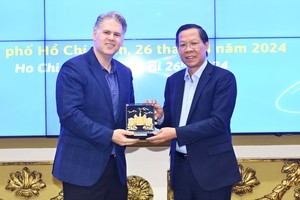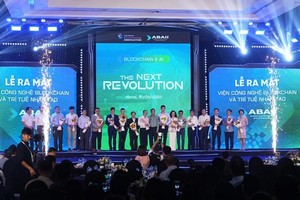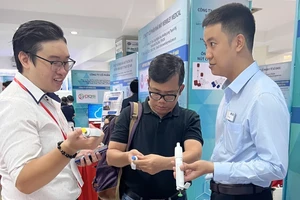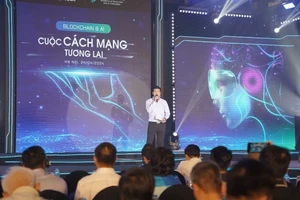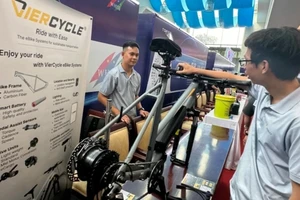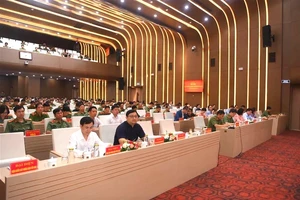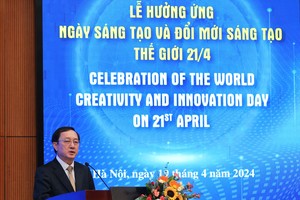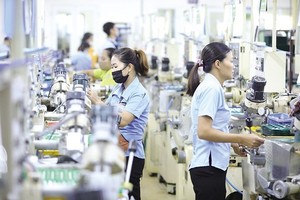
In popular supermarkets like Co.opmart, Go, Big C, most fresh food and produce are attached with a QR code. It is simple for consumers to check product origin as they just need to launch a QR code reader app like Zalo.
Duong Thi Tuyen in District 12 shared that she usually checks the origin of the items she wishes to buy. Through Zalo, she can easily read necessary information related to that item. However, she complained that the information pieces of produce such as harvesting time or expire date are not satisfying yet. She hopes that in the future, more goods will be attached with useful QR codes for traceability, and information in those links are for useful.
Deputy Director of the HCMC Department of Science and Technology Nguyen Thi Kim Hue stated that since 2106, the city has issued various policies to boost product traceability. Until May 2022, nearly 7,000 companies in 19 provinces have followed these policies when selling goods in HCMC.
Recently, HCMC Science and Technology Department has cooperated with the National Center for Codes and Barcodes (NBC – under the Directorate for Standards, Metrology and Quality of the Science & Technology Ministry) to host the conference ‘Propagandizing and Disseminating Product Traceability in HCMC in 2022’ as part of the project ‘Implementing and Managing the Traceability System, Legal Documents, National Standards’ throughout the city.
NBC has just introduced common requirements for traceability systems in HCMC in compliance with Standard 12850:2019, which details requirements on traceability, steps to develop traceability systems for products, data types and applications to use in this task.
Sharing valuable experience on launching the support model to attach QR codes onto vegetables in cooperatives in HCMC, Vo Duc Duy An from the Consultation and Support Center for Agricultural Economic Restructuring (under the HCMC Department of Agriculture and Rural Development) said that after the piloting time, the performance of this model increased from attaching QR codes on 4 tonnes of produce a day in 2016 to 21 tonnes per day in 2020. This greatly raised the awareness of produce processing companies in providing precise and sufficient information for their merchandise to better serve consumers.
Pham Thi Xuan Hong from HCMC Food Safety Management Board stated that her organization has issued a new 10-day procedure for companies to approach and register for QR codes. It has also cooperated with provinces to launch the project ‘Managing, Identifying, and Tracing Product Origin’. Training sessions for food processing and trading companies about food safety, including traceability, have been held as well.
HCMC Food Safety Management Board proposed that professional agencies soon introduce detailed regulations on methods, processes, and sanctions as to product traceability as well as mechanisms and policies to support companies, particularly small ones, to install tracing QR codes.
“Our organization will continue to work with the departments of Science & Technology, Industry & Trade, Agriculture & Rural Development in HCMC and the food safety departments in provinces to implement the project ‘Managing, Identifying, and Tracing the Origin of Pork, Poultry, Eggs in the 2021-2025 Period’. Simultaneously, produce under our management with traceability QR codes are aided to conveniently approach consumers”, said Pham Thi Xuan Hong.
